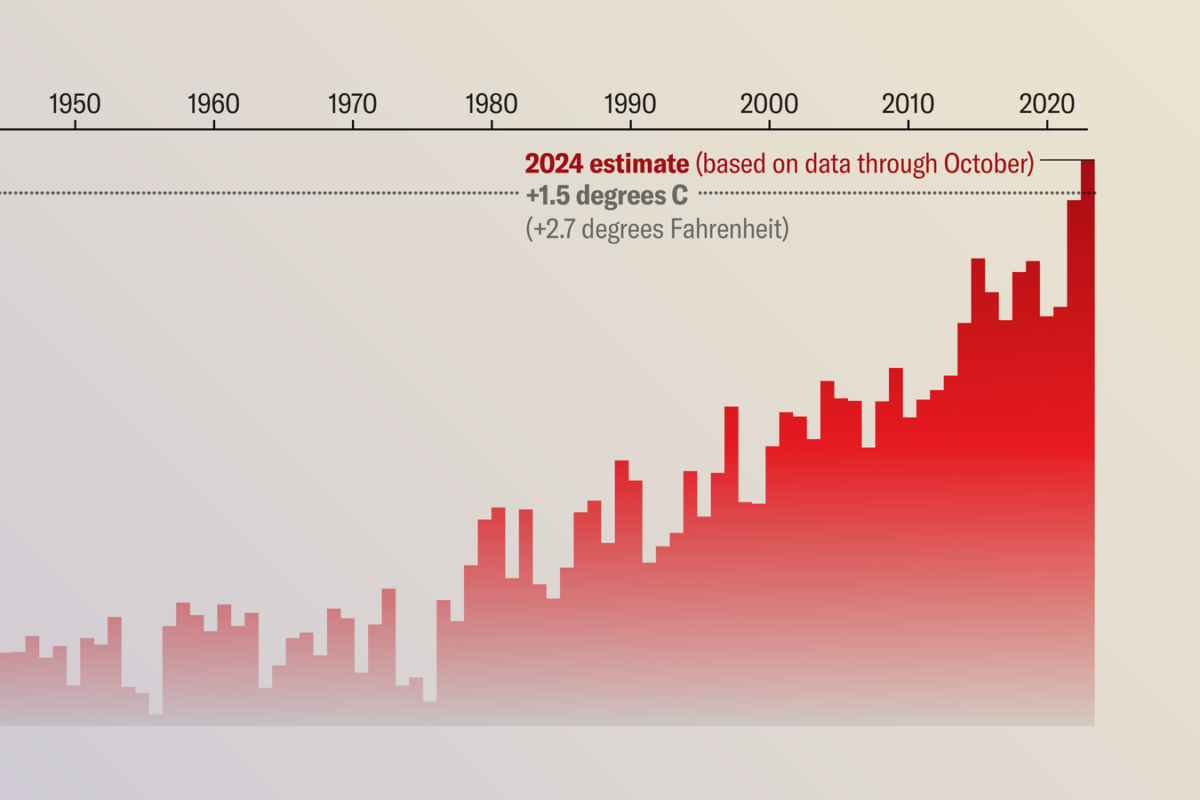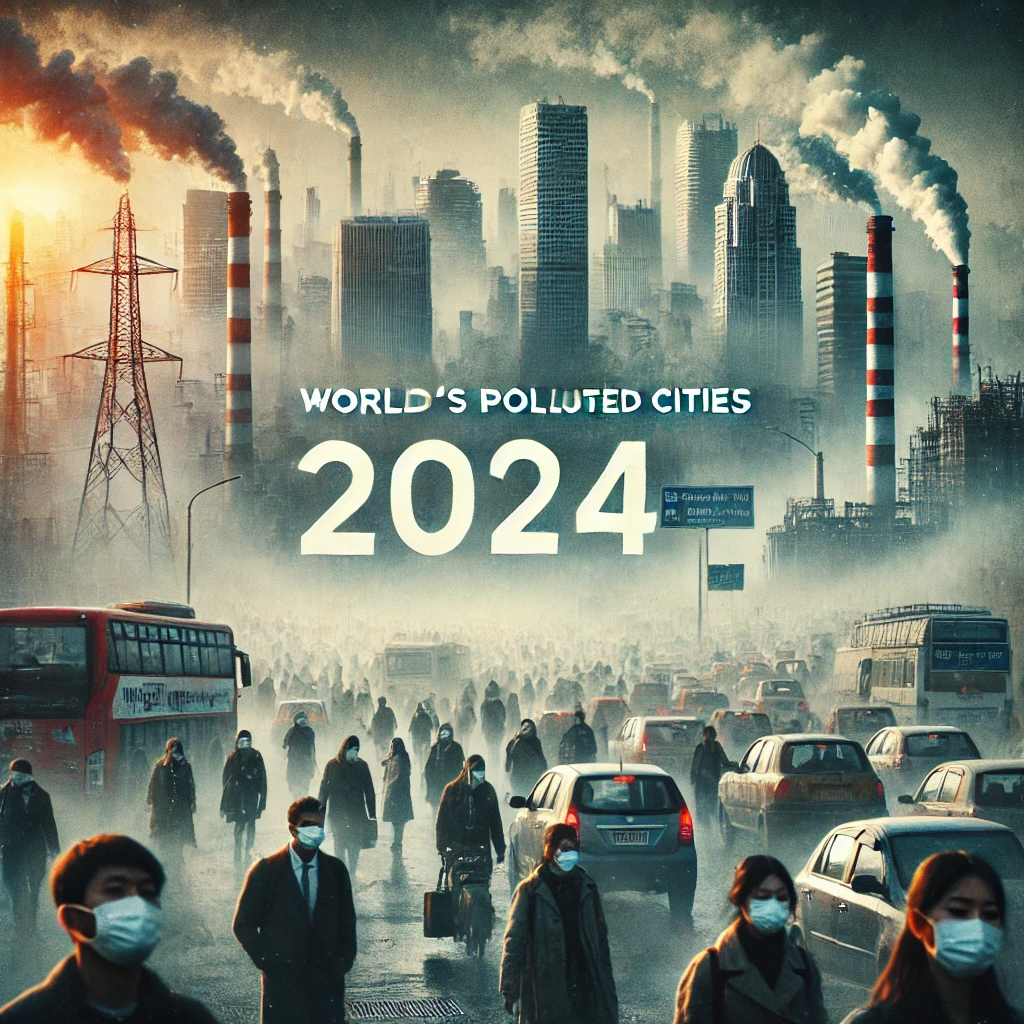2024 is set to mark a grim milestone in climate history. For the first time, Earth is likely to exceed 1.5°C of warming compared to preindustrial levels. This alarming development has raised concerns worldwide, especially with the recent re-election of former U.S. President Donald Trump, whose stance on climate policy could further hinder efforts to address the crisis.
Earth Hits 1.5°C Milestone – A Wake-Up Call?

This year, global temperatures are expected to cross the 1.5°C threshold that the 2015 Paris Climate Accord aimed to avoid. The European Union’s Copernicus Climate Change Service (C3S) confirmed that 2024’s temperatures are virtually certain to break this barrier. Samantha Burgess, deputy director of C3S, stated, “This milestone underscores the urgent need for climate action as we head toward COP29.”
The Paris Accord set 1.5°C as a limit to avoid catastrophic climate impacts. But monthly temperatures already exceed this limit, with October reaching 1.65°C above preindustrial levels. While not yet a yearly average, individual years exceeding this limit signal troubling progress toward sustained global warming.
Rising Temperatures and Rising Greenhouse Gases
Climate scientists identify greenhouse gas emissions as the main driver of these temperature increases. The World Meteorological Organization reported record levels of carbon dioxide (CO2) last year, reaching 420 parts per million (ppm), up from 280 ppm in the preindustrial era. The rise of CO2 and similar gases traps heat in the atmosphere, steadily driving up temperatures.
Increased temperatures worsen the frequency and intensity of extreme weather. Already, regions worldwide experience hotter and longer-lasting heatwaves, frequent destructive floods, and increased crop damage. These changes drive up food prices and increase health risks, further destabilizing economies.
Political Shift: The Climate Policy Uncertainty Under Trump
The recent election of Donald Trump casts uncertainty over U.S. climate policy. Trump has pledged to boost fossil fuel production and reduce regulations on greenhouse gas emissions. He has also vowed to pull the U.S. out of the Paris Climate Accord once again, disrupting global climate agreements.
In contrast, the Biden administration advanced climate initiatives, including the Inflation Reduction Act, which increased funding for renewable energy and set emissions reduction goals. However, under Trump, these efforts may be cut, reducing global momentum toward sustainable energy solutions.
The Paris Agreement’s goal is to keep global temperatures well below 2°C of warming, and ideally at or below 1.5°C. Scientists say we are already on a path that will exceed this mark in coming years. A renewed focus on fossil fuels could push temperatures higher, delaying efforts to stabilize the climate.
The Consequences of Ignoring Climate Warnings
For years, scientists have warned that delaying emissions cuts could trigger irreversible climate impacts. A warming world faces a range of crises: extended heat waves, more severe natural disasters, and widespread ecosystem damage. Climate studies show that lowering emissions could slow these changes, but only if nations act quickly and decisively.
Reducing emissions will require significant changes across energy, transportation, agriculture, and industry. Countries must adopt stricter emissions standards, invest in renewable energy, and reduce fossil fuel reliance. To date, only a few countries meet their climate targets, underscoring the need for stronger, more urgent action.
Climate Action or Climate Catastrophe?
As 2024 marks a new high in global temperatures, climate leaders urge immediate action. The upcoming COP29 climate conference is an opportunity for nations to raise their climate ambitions, but this depends on cooperation. Trump’s election complicates U.S. involvement, potentially slowing international progress.
Global warming above 1.5°C will have irreversible effects on Earth’s ecosystems, threatening food security, biodiversity, and public health. The window to prevent the worst impacts is closing fast, but political commitment remains uncertain. Without stronger policies, humanity faces a future of increasing instability and environmental degradation.
A Call for Urgent Action
The Earth’s likely warming beyond 1.5°C in 2024 is a stark reminder of the urgency needed to combat climate change. As the U.S. navigates its shifting political landscape, other nations must continue to push for aggressive climate action. The fight against global warming requires global commitment. The stakes could not be higher; failing to act now will lead to consequences felt for generations.




